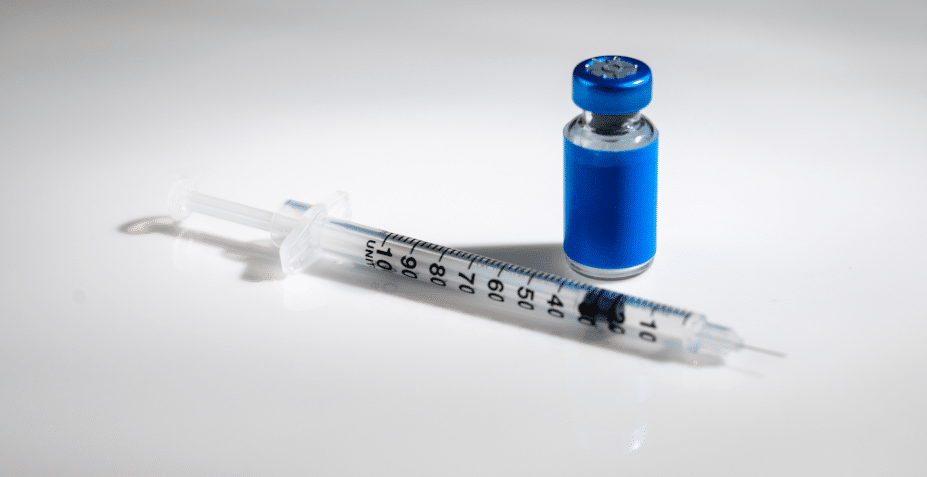
Much like the tagline “there’s an app for that” emerged due to the proliferation of smart device applications, “there’s a ‘pep’ for that” could become a new catchphrase to describe how doctors increasingly turn to peptides to address a broad range of medical issues. Peptides are going viral as a healthcare and anti-aging topic as researchers unlock their secrets and discover new ways to harness their ability to treat medical conditions at the cellular level. For example, the new blockbuster drugs Ozempic and Wegovy are formulations of the peptide semaglutide.
With over a decade of experience using peptide therapy in Naples to treat various health issues, internal medicine specialist Dr. Diane Brzezinski, D.O., and her partner physician, Dr. Michael Hellman, D.O., and Kelly Fennemore MSN, ARNP believe that peptides represent a game changer in the medical field. “Peptides may not be the ‘Holy Grail’ of medicine,” says Dr. B. “However, there’s tremendous excitement in the medical field about their potential, especially in treating conditions that resist traditional therapeutics.”
Dr. Hellman adds, “We use peptide therapy in Naples as part of a holistic approach to treat numerous conditions. While peptides for weight loss seem to have the public’s attention, many people don’t realize the extent to which the medical field is using peptides to treat other health issues. Autoimmune disorders? Check. Joint and ligament healing? Yep. Gastrointestinal disorders? Absolutely. And I can go on….”
Given the novelty of peptide therapies, these physicians’ patients often ask, “Are peptides safe?” when offered peptide therapy as part of their treatment. In response, Dr. B, Dr. Hellman, and Kelly inform their patients that peptides are safe, provided they are used appropriately under medical supervision. Let’s further examine the safety of peptides and what else you might need to know before undergoing peptide therapy in Naples.
WHAT EXACTLY ARE PEPTIDES, AND HOW ARE THEY USED THERAPEUTICALLY?
Peptides are short chains of amino acids that serve as the building blocks of proteins and play crucial roles in many biological processes, including cellular communication, hormonal signaling, immune response, tissue repair, and gene expression, among others. Most living organisms naturally produce peptides, and some, including humans, can also absorb and utilize peptides created by other organisms.
Researchers have identified over 7,000 peptides with bioactive properties that show medical promise. As therapeutics, peptides assist physicians in manipulating and managing physiological processes at the cellular level to treat specific conditions. To date, more than 100 peptides have received FDA approval for therapeutic use, and nearly 1,000 are undergoing clinical and pre-clinical trials. In addition to Semaglutide for weight loss and diabetes, the FDA has approved peptide therapies to treat:
- Various cancers
- Hypoglycemia
- Osteoporosis
- Short bowel syndrome
- Endometriosis
- And more
Some physicians also use FDA-approved peptides off-label to treat other conditions not prescribed and can use unapproved peptides as permitted by the agency’s “compounding” rules. Compounding allows pharmacies and physicians to prepare customized medications when commercially available drugs do not meet specific patient needs.
SO, ARE PEPTIDES SAFE?
The medical field considers peptides generally safe, provided they are sourced from reputable, regulated pharmacies or manufacturers and used under the supervision of a knowledgeable physician. Overall peptide safety depends on factors like peptide type, dosage, administration method, and the patient’s health conditions. Known peptide risks include:
- Common side effects like injection site reactions, headache, nausea, and fatigue.
- Interactions with other medications that may exacerbate underlying conditions.
- Using peptides produced by non-reputable, unregulated sources, leading to contamination issues and/or incorrect dosing.
- Individual unique risks of some distinct peptides if misused.
- Unknown long-term safety of many peptides due to limited research.
With more than a decade of successfully treating patients with peptide therapies, Dr. B’s practice has not faced any safety issues, and the various therapeutic uses by their clinic have not resulted in any patient complications. They attribute this success to their commitment to staying updated on new research regarding the peptides they use and to conducting diligent monitoring to detect potential adverse effects and evaluate the therapy’s effectiveness. In short, Dr. B, Dr. Hellman, and Kelly Fennemore MSN, ARNP will tell you, “Yes, peptides are safe.”
WHAT YOU SHOULD KNOW BEFORE UNDERGOING PEPTIDE THERAPY
Before undergoing peptide therapy, the most important thing to know is that your treatment will be closely supervised by a licensed physician who has knowledge and experience with peptides. Your chosen physician should carefully review your medical history, including any allergies, chronic conditions, medications, diet, and other relevant issues to assess the suitability of a specific peptide therapy. They should also have a clear plan for conducting regular monitoring to quickly detect potential adverse effects and track the treatment’s efficacy. Peptide therapies work best in conjunction with a healthy diet, exercise, and any necessary lifestyle changes. If your chosen physician doesn’t discuss all of these factors with you before starting treatment, you may want to consider another option.
For your part, you should ask your doctor about the peptide’s distinct purpose, mechanism of action, and any potential risks or side effects. Inquire about the evidence supporting its use to treat your condition and whether it’s FDA-approved or investigational. Additionally, you should ask what your doctor will do if the therapy seems ineffective or causes adverse effects.
YOUR PEPTIDE THERAPY IN NAPLES WITH DR. B’S CLINIC
Dr. B, Dr. Hellman, and Kelly Fennemore MSN, ARNP believe that peptide therapy is quickly becoming an integral part of their holistic approach to treating the whole patient, not just the disease. They look forward to expanding their peptide therapy offerings as researchers introduce new options into the medical mainstream. To learn more about peptide therapy in Naples and whether it’s a viable option for treating your healthcare issues, schedule an appointment by calling (239) 261-9990.




